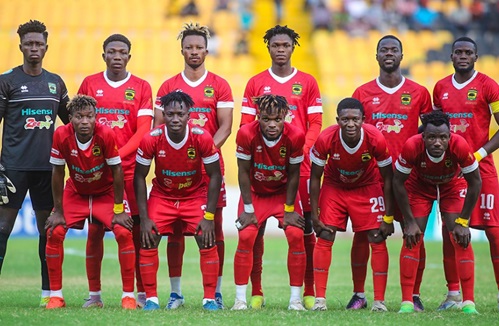Madam Akosua Frema Osei-Opare, the Chief of Staff, says Africa needs a united front to influence positive changes and attain recognition at the global level.
She said nurturing a unified front would serve as a powerful tool for attaining positive outcomes in all developmental processes.
The Chief of Staff said this on Thursday at the Ministry of Transport’s opening ceremony of the 16th Extraordinary Session of General Assembly of Maritime Organisation of West and Central Africa (MOWCA).
Aside discussing maritime problems facing Member States and generating viable solutions, the highlight of the gathering will also be the election of a new Secretary General.
Madam Osei-Opare said over 90 per cent of Africa’s international trade, imports and exports were conducted by sea, and for Ghanaians and nations across the sub-region, seaports served not only for domestic trade but also trade with other landlocked countries and the international community.
She said, however, Africa faced many maritime related challenges, with the biggest of them being maritime insecurity.
Madam Osei-Opare said the Gulf of Guinea had become a dangerous area for both merchant and fishing vessels, and was fast becoming a breeding ground for pirates.
She said armed robbery, illegal, unreported and unregulated fishing practices were also on the rise in the waters, and could only be solved through cooperation between nations to fish out the criminals.
“Again, the Sub-region by virtue of its geographical location has all the benefits of the Gulf of Guinea, including its stores of oil. The area, which stretches from the Coast of Senegal to Angola although notorious for illicit activities, is still one of the most preferred routes for ships transporting goods through Africa.”
“It is, therefore, our responsibility to protect this area and I implore members to urgently take steps to address any security issues. I have no doubt that MOWCA would be at the forefront of leading an effort to improve safety and security of our territorial waters,” she added.
Mr Kwaku Ofori Asiamah, Chairman of MOWCA, said the maritime industry contributed immensely to the development and prosperity of various nations, adding that, by the efficient utilisation of oceans and seas, many needs of the globalised world would be met.
He noted that Member States were strategically positioned in the Gulf of Guinea, thus, the heavy reliance on international maritime commerce and exploitation of maritime resources.
Mr Asiamah, who is also Ghana’s Minister of Transport, said for Member States to reap the full benefits of their proximity to the maritime space, they would need to collaborate more in the development of strategies for the sustainable utilisation of their maritime resources.
He said the quest for development in the sector required effective collaboration and coordination amongst Member States, adding that, no single Member State could make significant strides on its own.
“Areas such as maritime security, maritime safety and navigation, ports and infrastructure development, environmental protection, fisheries amongst others can only become effective when approached with a coordinated and integrated effort.”
“There is, therefore, the urgent need for Member States to honour their obligations. We cannot change everything at once but if we work together, progress in a few areas will lead to progress in many more,” he said.
MOWCA was originally established in 1975 as the Ministerial Conference of West and Central African States on Maritime Transport (MINCONMAR).
The Organisation was aimed at providing the sub-region with an institutional mechanism for having control over the cost of carriage by sea of foreign trade Member States. It also sought to ensure the provision of profitable transport services within Member States.
In 1999, the Organization adopted its current name, MOWCA. Since then, the mission of the Organization has been expanded to include safety of navigation, institutional support for maritime businesses, capacity building and sustainable financing of maritime and port sectors.
Source: GNA







